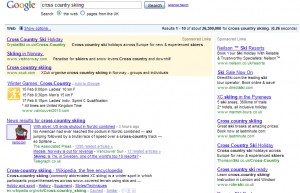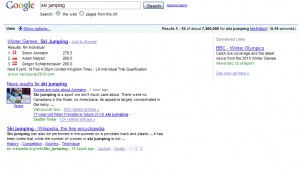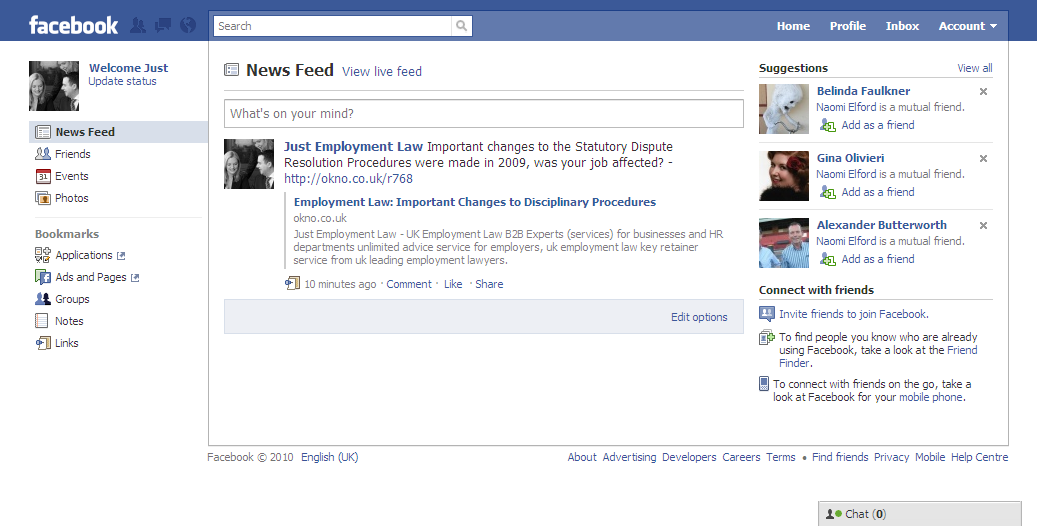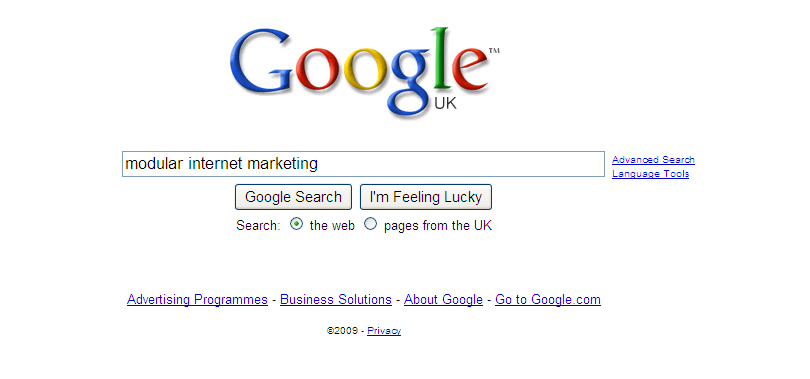Day 3 in Google watch, and today they have introduced a new search feature called ‘Google Instant’. This is a search function that starts loading predictive search results to users who are logged into a Google account.
For example, if I were to simply just type the letter ‘f’ into the search field, it would have ‘facebook’ come up in light grey as you typed and the results for Facebook would start loading below my search. Google Instant results try to predict what you are searching for as you type. As what you type changes, Google changes what it serves you in real time. You don’t even have to hit ‘enter’ or click the search button to get results.
Not everyone has been encouragable about the new Instant Search feature. Many people have found the search engine trying to give you search term suggestions AND suggested search results is information overload. Google has been renowned for it’s simplicity over the years, and this change will be very hard to swallow for many people. One of the claimed benefits of predictive results are that you can save on average 2.5 seconds on each each search. Personally, I actually type by looking at my keyboard as I press each key. Unless I pause to look up the screen, the instant results will be lost on me. Many of the supplied results will also be irrelevant, which may also distract you, making you spend more time on your search.
The sheer volume of ‘anti-new Facebook’ groups joined by hundreds of thousands of people when the Facebook layout changed is evidence that people take time to adapt to change. Do you still hear people complaining? Nope. Once everyone gets used to something they usually forget why they complained about it in the first place. I don’t doubt that Google Instant results will be any different.
On another note, the Daily Mail Online reported on this same article earlier today thinking that Google Instant referred to the predicted search terms you get in the drop down menu. This has in fact been around for months and is nothing to do with today’s search engine result suggestions.
“Goggle has today announced new ‘Instant’ search results, introduced for users around the world.
Google searches will now predict what users are looking for from the very first letter they type.
Google’s homepage will then switch instantly to a drop-down menu of results that continually updates as the user adds more letters to their search term” – says Niall Firth in his poorly researched column.
This was also picked up upon by a commenter on the article:
“You have got this story completely wrong. Google instant return the search results, not the suggestions in the pull down. That has been in place for months. I wonder if Niall Firth actually uses Google” - Jaz, Chelmsford.
I believe when the dust settles people will get more than used to the new Google Instant feature. I don’t believe it will save much time in people’s searches. I also doubt people will use it very regularly, unless they are searching for a very common search term like ‘Twitter’. Its there for people to use, and can be turned of easily if you don’t like. Not the end of the world. You may use it from time to time. Up to you!

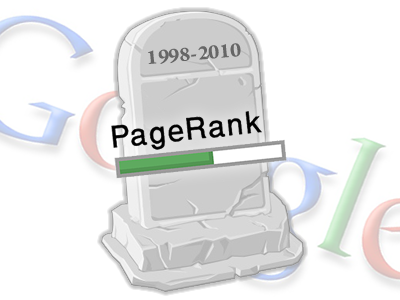 On October 14, 2009, Google employee Susan Moskwa confirmed that the company had removed PageRank from its Webmaster Tools section. Her post said in part, “We’ve been telling people for a long time that they shouldn’t focus on PageRank so much; many site owners seem to think it’s the most important metric for them to track, which is simply not true.”
On October 14, 2009, Google employee Susan Moskwa confirmed that the company had removed PageRank from its Webmaster Tools section. Her post said in part, “We’ve been telling people for a long time that they shouldn’t focus on PageRank so much; many site owners seem to think it’s the most important metric for them to track, which is simply not true.”